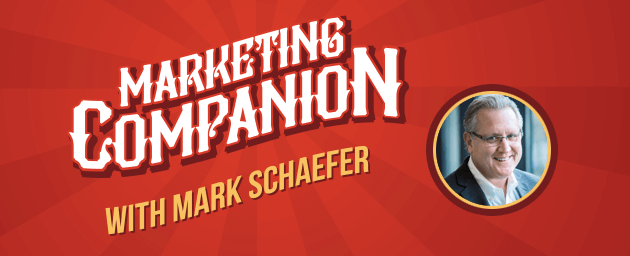
By Keith Reynold Jennings, {grow} Contributing Columnist
Something I’m hearing marketers and leaders wrestle with this year — more than any other it seems — is how they can signal their business’s values through their marketing. (Or whether they should even try.)
As a business owner or representative, how have YOU navigated the pandemic, Black Lives Matter movement and/or U.S. election with your business? Have you taken a public stance personally? Professionally? As a company?
When brands take stands on social and/or environmental issues, it can offer huge rewards in terms of increased brand awareness, loyalty, talent recruitment, and profitability. But it comes with risks.
If a brand signals a single hint of inauthenticity or is even perceived to be incongruent with their expressed values, the pushback from consumers and activists can be devastating.
When it comes to values-based marketing, one of the worst mistakes a business can make is using marketing to drive its values, rather than letting its values drive its marketing.
If you are thinking about, or have dipped a toe into values-based marketing, it’s a long voyage across a tempestuous ocean. So it’s best you know how to navigate the conditions you’ll face.
That said, the destination and discoveries can be well worth the effort.
This article offers some framing to help you think about the values driving your brand and business; however, it remains a high-end introduction given the complexity of this topic.
Core Values in the Origin Story
 Yvon Chouinard is an American rock climber. In the 1950s, he started scaling many of the world’s most challenging mountains. Back in the day, American alpinists used European-made pitons, which had to remain permanently anchored in the rock face.
Yvon Chouinard is an American rock climber. In the 1950s, he started scaling many of the world’s most challenging mountains. Back in the day, American alpinists used European-made pitons, which had to remain permanently anchored in the rock face.
This created two problems. The permanence of the pitons invited increased climber traffic. And the heavier climber traffic increased damage and erosion, which threatened the sustainability of the mountains.
So Chouinard became a blacksmith and designed removable pitons, which ensured safety for climbers and the environment. He started selling his pitons out his car as he surfed and climbed around the world.
While traveling and climbing around Europe, he discovered that Rugby shirts were perfect for climbers. They were thicker and more durable, so they could be patched, repaired, and re-worn. This better protected climbers’ skin and prevented them from adding to the world’s waste fields.
So, like his pitons, he stocked up on Rugby shirts and started selling them out of his car with his pitons.
With that, the renowned company and brand, Patagonia, was born.
I share that story with you to reveal that, from its beginning, Patagonia had a deep care for the safety and sustainability of climbers and the environment.
It was who they were then. And it’s who they are now.
Even today, they encourage customers to send them all of their Patagonia clothing for repair or re-sell in order to minimize waste.
The company I work for, Jackson Healthcare, is known for its culture and values. Our founder, Richard L. Jackson, grew up in the foster care system. Years ago, he discovered that he had built all of his companies on the values he had most longed for his entire life: family.
Action Step #1: Whether you are a solo business or part of a large enterprise, the core values of your business lie in its origin story. Go back and rediscover that story.
The Legacy You’re Building
When John Cronin was a senior in high school, he wanted to start a business with his dad.
Two factors converged to fuel John’s desire. He was born with Down Syndrome, so he knew how limited his options were in the traditional job market. Plus, as a Special Olympics athlete, John was an entrepreneur and competitor at heart. Throughout his school days, he never let Down Syndrome hold him back.
John had a few ideas for a business, but during the 2016 Thanksgiving season, he told his dad he wanted to sell crazy socks. He had worn crazy socks his whole life and was known by everyone for his fun, creative socks, and infectious personality.
With that, John’s Crazy Socks was born.
Again, that’s the power of the origin story in revealing a business’s values. However, that’s only the beginning of values-based marketing.
John and his dad had a bigger vision than simply selling socks. They wanted to show the world what a company run by people with differing abilities can do. So over half their workforce is made up of adults with special needs. And they give away a significant portion of their profits to organizations that support people with Down’s Syndrome, autism, etc.
John now partners with other entrepreneurs, like him, to help them grow their business. And he and his dad advocate on behalf of people with differing abilities in Congress. Oh yeah, John’s sock business brought in over $1 million in its first year. And has grown to over $6 million last I heard.
I share this story with you because, like Patagonia, the values driving John’s Crazy Socks were baked in from its beginnings. But the real power behind the values driving these brands comes from the others-first narrative they’re serving. And the legacy they’re building for others to follow.
Action Step #2: Write out exactly what future narrative your business serving. How is it working to make the lives of people and/or the planet better?
Alignment With Your Archetype
Due to the immensity and complexity of the world, we use a number of techniques to make sense of it. One of these techniques is pattern recognition.
The word for “original pattern” in ancient Greek is the word, “archetype.”
Through his studies of psychotic patients and others, Swiss psychologist, Carl Jung, identified 12 universal archetypes that fall within one of four groups, or what he called “cardinal orientations”:
- Those who seek to connect with others are socially oriented
- Those who seek to provide structure to the world are order-oriented
- Those who yearn for paradise are freedom-oriented
- Those who seek to leave a mark on the world are ego-oriented
According to Jung, each of us tends to have one dominant archetype that drives our personality and worldview. Of course, the same is true of organizational brands.
Here are the 12 Jungian-based brand archetypes categorized by cardinal orientation:
Social Orientation (Seeks Connection)
- The Everyman — helps others feel okay about who they are
- The Jester — helps others have a good time
- The Lover — helps others feel and give love
Order Orientation (Seeks to Provide Structure)
- The Caregiver — helps others care for others
- The Ruler — helps others exert control
- The Creator — helps others create new things
Freedom Orientation (Yearns for Paradise)
- The Innocent — helps others renew their faith
- The Sage — helps others understand the world
- The Explorer — helps others maintain independence
Ego Orientation (Seeks to Leave a Mark)
- The Magician — helps others affect transformation
- The Outlaw — helps others break the rules
- The Hero — helps others act courageously
Within each archetype lies a brand’s core worldview and values. For example, John’s Crazy Socks is a hero brand. John, his dad, and their teamwork tirelessly to encourage people with differing abilities to be bold and show the business community what they can do. John has even designed his own superhero sock!
Nike is a hero brand too. So it makes sense when they take public stances in support of courageous athletes who stand (or kneel) for specific causes.
Patagonia is an explorer brand, helping people experience the world’s wildest places while protecting and sustaining it for future generations.
Fred Rogers (aka Mister Rogers) embodied The Caregiver archetype. So it would not feel genuine had he suddenly encouraged kids to break the rules, a value more in line with The Outlaw archetype.
Action Step #3: Which archetype would your clients/customers say your brand embodies? Are your business’s expressed values congruent with its operations, marketing, and customer experiences?
Don’t Let Your Marketing Drive Your Values, Let Your Values Drive Your Marketing
Values-based marketing has been around for over half a century. Companies such as The Body Shop, Ben & Jerry’s, and others were founded on social and environmental values that transcended profit and growth. To them, profit was a means to living their values. It was never an end.
Their values drove their marketing. Their marketing didn’t drive their values.
I can’t speak for you, but I have a hard time figuring out the values of many SMBs I encounter, especially B2B businesses. Their archetypes aren’t clear either.
If values-based marketing is something customers actually, um, value, then why do so many companies play it safe?
Well, the truth is that taking public stands on issues isn’t a guaranteed path to loyalty, growth, or profitability. It’s easy to name those who have succeeded. But for each success story, there are many others who didn’t. And there are brands, such as The Body Shop, who were founded on strong social values, only to have their founders ultimately ousted in the name of increased profits by shareholders.
Profit and growth are values too. But when we use the phrase “values-based marketing,” we tend to be referring to businesses that choose to move beyond self-oriented organizational values toward others-oriented societal and/or environmental values.
To do this well, start with a clear understanding of where you came from, where you’re going and whether your everyday actions are congruent with how others perceive your brand.
If this is a topic you’d like to explore more deeply for yourself or your business, I invite you to join Mark Schaefer and me at one of two Uprising Online events in February. We will be having an in-depth discussion on this topic!
 Keith Reynold Jennings serves as vice president of community impact for Jackson Healthcare and an advisor to goBeyondProfit. Connect with Keith via Linkedin and his monthly letter, Root Notes.
Keith Reynold Jennings serves as vice president of community impact for Jackson Healthcare and an advisor to goBeyondProfit. Connect with Keith via Linkedin and his monthly letter, Root Notes.
Illustration courtesy Unsplash.com


